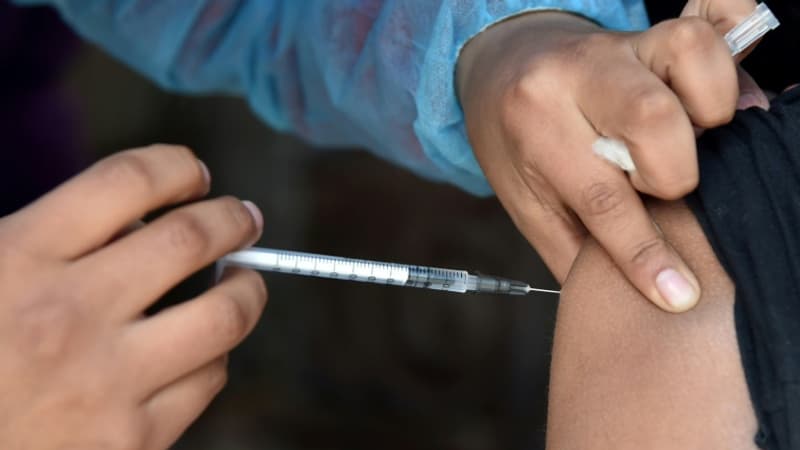Hope to cure skin cancer? In recent days, in England, hundreds of patients have received the first personalized mRNA vaccine against melanoma, the deadliest form of skin cancer, indicates The Guardian in an article published on Friday, April 26.
According to the International Agency for Research on Cancer, around 330,000 new cases of melanoma will be diagnosed worldwide in 2022 and almost 60,000 people will die from the disease.
To date, surgery remains the primary treatment option for most early-stage melanomas. For more advanced cancers, other treatments such as radiotherapy, medications and chemotherapy are also used.
“I think there is real hope that the vaccine will be a game-changer in immunotherapy,” said Dr. Heather Shaw, an oncologist and trial coordinator at University College London Hospital (UCLH).
A “tailor-made” vaccine
The vaccine used in clinical trials is an individualized neoantigenic therapy. That is, it is specifically designed to adapt to the genetic signature of each patient’s tumor.
“It’s completely tailored to the patient,” Dr. Heather Shaw exulted to The Guardian.
Once the vaccine is injected, it allows the patient’s immune system to recognize and attack the cancer cells. The goal is to prevent cancer recurrence after tumor removal. According to the British Institute for Health and Care Research (NIHR), the treatment is based on mRNA developed by the Moderna and Merck Sharp and Dohme (MSD) laboratories.
How to create a custom vaccine? To personalize treatment, scientists take a sample of the patient’s tumor during surgery. They then use DNA sequencing and artificial intelligence to create a tailored therapy specific to each tumor.
“The idea behind this immunotherapy is that, by inducing the body to produce these proteins, it can prime the immune system to quickly identify and attack the cancer cells that carry them, with the goal of preventing melanoma recurrence,” explained Dr. Heather Shaw at the National Institute for Health and Care Research.
In a study published in the scientific journal The Lancet, the phase 2 clinical trial revealed a 49% reduction in the risk of recurrence or death after three years compared to standard treatment.
Towards a global judgment
Among the first patients to take part in this trial, Steve Young, 52, said he was very excited. “I’m very happy! This is my best chance to stop cancer,” he told The Guardian. Originally from Stevenage, Hertfordshire, the man had melanoma removed from his scalp last August.
A global trial, which will constitute phase 3 of the clinical trial, must now include a larger number of patients, that is, 1,100 people. The British component, for its part, aims to recruit at least between 60 and 70 patients in eight research centers, particularly in London, Manchester, Edinburgh and Leeds.
“This is one of the most exciting things we’ve seen in a long time,” said Dr. Heather Shaw.
The clinical trial of the vaccine is currently being carried out at University College London Hospital (UCLH) and is supported by the UK Clinical Research Network (CRN) and Vaccine Innovation Pipeline (VIP).
Source: BFM TV


